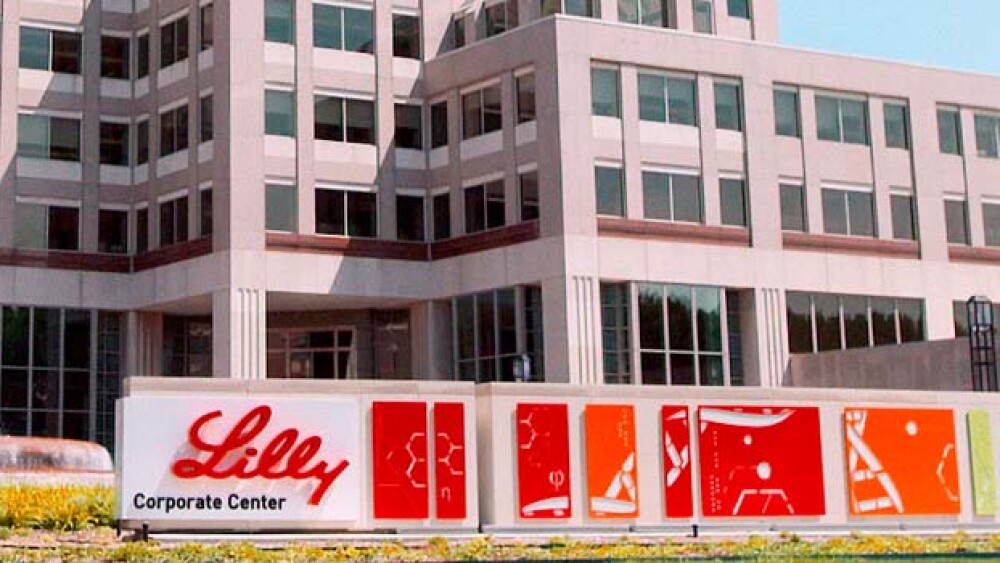Last week, the FDA’s advisory committee review of Eli Lilly and Incyte’s baricitinib for rheumatoid arthritis expressed safety concerns. Not surprisingly, the Arthritis Advisory Committee’s recommendation yesterday was mixed, split right along safety concerns.
Last week, briefing documents related to the U.S. Food and Drug Administration (FDA)’s advisory committee review of Eli Lilly and Incyte’s baricitinib for rheumatoid arthritis expressed safety concerns. Not surprisingly, the Arthritis Advisory Committee’s recommendation yesterday was mixed, split right along safety concerns.
The committee recommended the 2-mg dose of the drug be approved for moderate to severe active rheumatoid arthritis in adults who didn’t respond or tolerate methotrexate. The committee unanimously supported the 4-mg dose of baricitinib based on efficacy, but did not recommend it because of safety and its benefit-risk profile.
The panel voted 10 to 5 in favor of the 2-mg dose, but 10 to 5 against the 4-mg dose. The vote based solely on efficacy was 14 to 1 for the 2-mg dose and 15-0 on the 4-mg dose, but overall voted against the 4-mg dose.
“We are confident that baricitinib, if approved, can help people in the U.S. manage the challenges of living with RA,” said Christi Shaw, president of Lilly Bio-Medicines, in a statement. “While we are disappointed with the Advisory Committee’s assessment of the data for the 4-mg dose, we are confident in the positive benefit-risk profile of both the 2-mg and the 4-mg doses. We look forward to continuing our work with the FDA on our New Drug Application (NDA) and are hopeful that baricitinib will receive approval in the coming months.”
The drug has been approved for both doses in more than 40 countries, but not yet in the U.S.
Last year, the FDA rejected Lilly’s application for the drug, requesting more data about safety concerns and dosing. Safety data indicated the lower 2-mg dose was safe, but the 4-mg dose had issues, which raised questions about whether there is additional benefit. And the limited safety data on the lower dose made a risk-benefit analysis difficult. The 4-mg dose was the most widely tested, had the best efficacy, but also showed increased risk of blood clots.
Of the Adcomm vote, Leerink analyst Geoffrey Porges wrote in a note, “Notably, only two of the four Phase III trials included the 2-mg dose, and these allowed patients to be rescued with 4 mg if adequate efficacy was not achieved (since these were likely patients with more active disease, it may have skewed the results for the 2-mg dose).”
If the 2-mg dose is approved, it is similar to Pfizer’s Xeljanz, which would be a direct competitor. Tim Anderson, an analyst with Bernstein, wrote in a note to investors, “Bulls may argue that at least the 2 mg has likely made it through; bears may argue that without the 4-mg dose, the perception and commercial profile of baricitinib is wounded (in the U.S.).” But he’s concerned about their chances, as “Lilly does not know the RA space, which is crowded; and biosimilars in the RA market are coming (or are here, in the case of Remicade).”
The FDA isn’t required to follow the committee’s recommendation, but usually does. However, with such mixed recommendations, it’s much harder to predict the outcome, particularly if baricitinib doesn’t offer much improvement over existing treatments, but has higher safety concerns.
Today, the company reported its 2018 first-quarter financial results, noting a 9 percent increase in quarterly revenue with a 5-percent drop in operating expenses. Quarterly revenue was $5.7 billion, up from $5.228 billion in the first quarter of 2017.
“Lilly delivered strong financial results in the first quarter, fueled by revenue growth of new products and continued productivity gains that together resulted in robust earnings growth and an improved financial outlook for the year,” said David Ricks, Lilly’s chairman and chief executive officer, in a statement. “We are in the early stages of a new growth era, driven by the strong uptake of our new products, ongoing margin expansion, and the momentum we are producing in our pipeline. Lilly remains poised to deliver more innovation for patients and increased value for stakeholders.”





